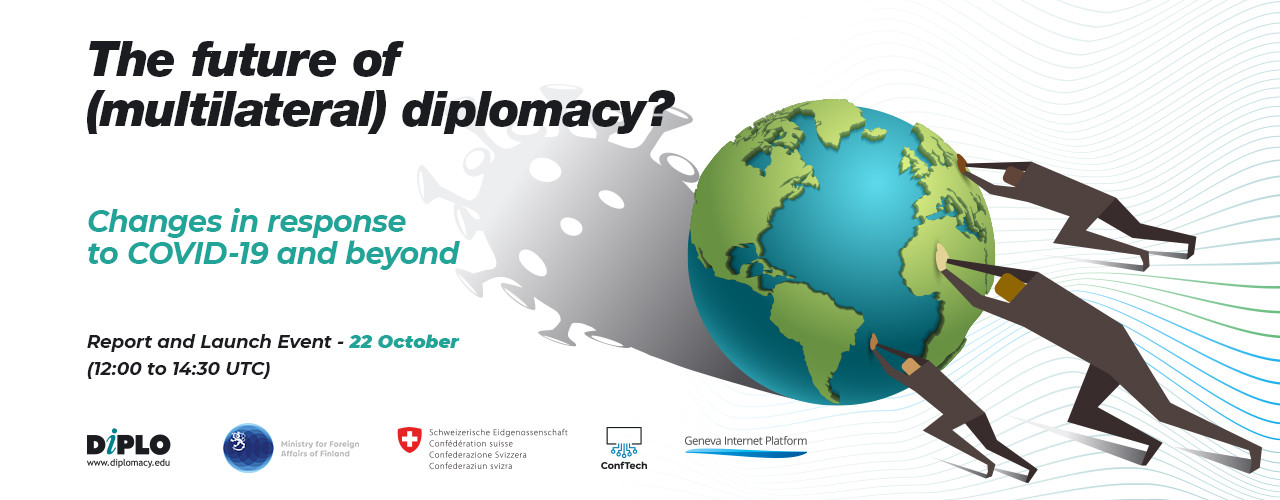
TIME REMAINING:
This year marks the 75th anniversary of the United Nations, but it is also the year when the world is responding to the emergence of the novel Coronavirus, an unprecedented global challenge that leaves no area of society and no individual untouched.
The various entities within the UN system are faced with the herculean task of responding to COVID-19. What lessons can we draw from this and what does it mean for the future of the organisation? More broadly, what is the future of multilateralism in a world which exhibits some strong unilateral tendencies? COVID-19 has also impacted the work of diplomats. Most importantly, the need for social distancing has led to changes in how diplomacy is practised. How has diplomacy, a profession that strongly builds on interpersonal and face-to-face contacts, dealt with this fundamental shift?
The conference discusses the major findings of the research study The future of (multilateral) diplomacy (PDF, 5.4 Mb), conducted with the support of the Finnish Ministry for Foreign Affairs. We will also share experiences from our ConfTech Help Desk, which is supported by the Finnish Ministry for Foreign Affairs, the Swiss government, and is made possible through the operational support of the Ford Foundation. The ConfTech Help Desk provides immediate advice and support to countries and organisations in finding solutions and making the right decisions on how to organise their online meetings and events.
Following a high-level plenary session, the event will bring together more than 20 experts (online and in situ) for discussions on the following five tracks: The future UN and multilateralism; Practice, protocol, procedure; Small and developing countries; Digital diplomacy and diplomacy by video conference; and Diplomatic training for new skills and tools.
For more information, please write to us at webinars@diplomacy.edu.
Plenary sessions
Coffee break
Track one: The future of the UN and multilateralism
13:00–14:15 UTC
Moderator: Dr Jovan Kurbalija (Executive Director, DiploFoundation; Head, Geneva Internet Platform (GIP))
This track will provide a broad perspective on the UN and multilateralism. The various entities within the UN system are faced with the herculean task of responding to COVID-19. At the same time, lockdowns and social distancing challenge the way in which diplomacy is practised. What lessons can we draw from this and what does it mean for the future of the UN and, more broadly, the future of multilateralism, in a world that seems increasingly divided? What are the possible responses, and what role does technology play in supporting the work of the UN?
This track is an in-depth discussion between Ambassador Emil Brix, Ambassador Vanessa Frazier, Ms Monica Ferro, Mr Marc Engelhardt, Mr Richard Hill, and Dr Jovan Kurbalija.
Track two: Practice, protocol, and procedures
13:00–14:15 UTC
Moderator: Dr Katharina Höne (Director of Research, DiploFoundation)
The practice of diplomacy has been impacted by social distancing and lockdowns as responses to the COVID-19 pandemic. In this track, we will take a closer look at the shifts in diplomatic practice, and how the profession as a whole responded. While the absence of informal spaces for negotiation has proven to be a huge challenge, some of the shifts in practice might have positive impacts in the longer term. We also witnessed changes in the rules of procedure of the UN General Assembly and the UN Security Council. Has diplomatic practice proven adaptable enough? What are the medium- and longer-term impacts on the profession?
Track three: Focus on small and developing countries
13:00–14:15 UTC
Moderator: Dr Stephanie Borg Psaila (Director, Digital Policy, DiploFoundation)
While the COVID-19 pandemic demanded adaptation across the diplomatic profession, small and developing countries faced an additional set of obstacles. Internet connectivity and lack of in-house cybersecurity expertise are two common technological challenges. In this track, we will focus on the experiences of practitioners and try to paint a fuller picture of day-to-day work, and the challenges and opportunities encountered. While this crisis can also be understood as a chance, dedicated efforts are needed in order to avoid an increasingly uneven diplomatic playing field. This begins by closely listening to the experiences of practitioners.
Track four: Digital diplomacy and diplomacy by video conference
13:00–14:15 UTC
Moderator: Mr Vladimir Radunović (Cybersecurity and E-diplomacy Programmes Director)
Digital diplomacy is a buzz word that has been around for quite a while. However, many diplomats and ministries of foreign affairs (MFA) seem to have been underprepared. Has the Coronavirus crisis given new impetus for MFAs to pursue digital diplomacy? Is the future of diplomats and MFAs digital, and if so, why? In addition to these questions, myths related to digital diplomacy, such as that it always leads to more transparency, need to be carefully unpacked. Further, on a practical level, diplomats faced challenges related to choosing an appropriate online platform and ensuring the right level of security for videoconferencing. What advice can we offer them?
Track five: Diplomatic training for new skills and tools
13:00–14:15 UTC
Moderator: Dr Tereza Horejsova (Project Development Director, DiploFoundation)
Diplomats need to acquire new skills and techniques to act effectively in times of the COVID-19 crisis and beyond. These skills range from the simple use of online conferencing facilities to more sophisticated ways of negotiating in online or hybrid ways. In addition, diplomatic training has also shifted online, and training institutions, now more than ever, need to consider the use of digital tools. In short, this track will address a wide range of topics related to: (a) what diplomatic training should teach; and (b) how diplomatic training should be delivered.
Wrapping up
14:15–14:30 UTC
Moderator: Dr Tereza Horejsova (Project Development Director, DiploFoundation)
In this final section, we face the task of summarising the main takeaways from our discussions in the parallel tracks. What are the main insights from more than 20 experts who took part in the conference? What are the next steps for the near, and medium- and long-term future? Where are we heading and how can we correct our course where needed? How can we ‘build back better’?

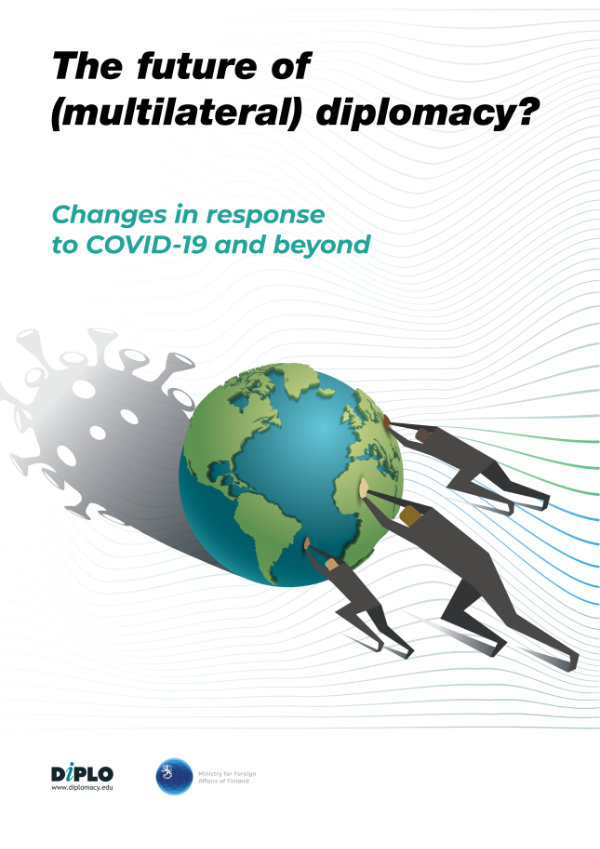


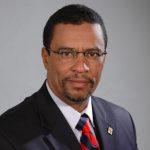 Mr Moctar Yedaly is a telecom, satellite, and computer engineer with an MBA in International Business. He graduated from George Washington University, Amity University, and the Institute of Informatics. He has more than 20 years of international experience in the field communication and networks management, resources evaluation, and policy preparation. He is a former staff member of Intelsat in the USA and RASCOM in the Ivory Coast. Since 2008, he has been in charge of the Information Society Division within the department of Infrastructure and Energy of the African Union Commission.
Mr Moctar Yedaly is a telecom, satellite, and computer engineer with an MBA in International Business. He graduated from George Washington University, Amity University, and the Institute of Informatics. He has more than 20 years of international experience in the field communication and networks management, resources evaluation, and policy preparation. He is a former staff member of Intelsat in the USA and RASCOM in the Ivory Coast. Since 2008, he has been in charge of the Information Society Division within the department of Infrastructure and Energy of the African Union Commission.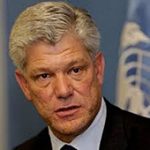 Mr Fabrizio Hochschild is special adviser to the UN Secretary-General on the Preparations for the Commemoration of the United Nations’ 75th Anniversary. He has been serving as assistant secretary-general for Strategic Coordination in the Executive Office of the Secretary-General since 2017. Prior to that, he served as deputy-special representative for the UN Multidimensional Integrated Stabilization Mission in the Central African Republic (MINUSCA) in 2016.
Mr Fabrizio Hochschild is special adviser to the UN Secretary-General on the Preparations for the Commemoration of the United Nations’ 75th Anniversary. He has been serving as assistant secretary-general for Strategic Coordination in the Executive Office of the Secretary-General since 2017. Prior to that, he served as deputy-special representative for the UN Multidimensional Integrated Stabilization Mission in the Central African Republic (MINUSCA) in 2016. Dr Jovan Kurbalija is the Executive Director of DiploFoundation and Head of the Geneva Internet Platform (GIP). He was a member of the UN Working Group on Internet Governance (2004‒2005), special advisor to the Chairman of the UN Internet Governance Forum (2006‒2010), and a member of the High Level Multistakeholder Committee for NETmundial (2013‒2014). In 2018-2019, he served as co-Executive Director of the Secretariat of the United Nations (UN) High-level Panel on Digital Cooperation.
Dr Jovan Kurbalija is the Executive Director of DiploFoundation and Head of the Geneva Internet Platform (GIP). He was a member of the UN Working Group on Internet Governance (2004‒2005), special advisor to the Chairman of the UN Internet Governance Forum (2006‒2010), and a member of the High Level Multistakeholder Committee for NETmundial (2013‒2014). In 2018-2019, he served as co-Executive Director of the Secretariat of the United Nations (UN) High-level Panel on Digital Cooperation. Ambassador Emil Brix, Austrian diplomat and historian, has been the director of the Vienna School of International Studies (Diplomatische Akademie Wien) since 2017. After joining the Austrian diplomatic service in 1982, he worked as political secretary for the parliamentary group of the Austrian People’s Party. In 1986, he was appointed head of cabinet at the Ministry of Science and Research. From 1990 until 1995, Brix served as the Austrian consul general in Cracow, Poland. Subsequently, he was the director of the Austrian Cultural Institute in London, a position he held for four years. In 2002, he was appointed director general of Foreign Cultural Policy at the Ministry for European and International Affairs of Austria. After serving five years as Austrian ambassador to the UK, he became Austrian ambassador to the Russian Federation in 2015.
Ambassador Emil Brix, Austrian diplomat and historian, has been the director of the Vienna School of International Studies (Diplomatische Akademie Wien) since 2017. After joining the Austrian diplomatic service in 1982, he worked as political secretary for the parliamentary group of the Austrian People’s Party. In 1986, he was appointed head of cabinet at the Ministry of Science and Research. From 1990 until 1995, Brix served as the Austrian consul general in Cracow, Poland. Subsequently, he was the director of the Austrian Cultural Institute in London, a position he held for four years. In 2002, he was appointed director general of Foreign Cultural Policy at the Ministry for European and International Affairs of Austria. After serving five years as Austrian ambassador to the UK, he became Austrian ambassador to the Russian Federation in 2015. Ms Monica Ferro is the director of the UN Population Fund (UNFPA) in Geneva. Prior to joining UNFPA, she was a university professor and researcher for more than 20 years. She also served as a parliamentarian and president of the Portuguese All Party Group on Population and Development, and as vice president of the European Parliamentarian Forum. Previously, she held the position of state secretary for defense, and she is a founding member of the Portuguese UN association, the Population and Development Factor. She has published extensively on state building, security sector reform, the UN, and development cooperation.
Ms Monica Ferro is the director of the UN Population Fund (UNFPA) in Geneva. Prior to joining UNFPA, she was a university professor and researcher for more than 20 years. She also served as a parliamentarian and president of the Portuguese All Party Group on Population and Development, and as vice president of the European Parliamentarian Forum. Previously, she held the position of state secretary for defense, and she is a founding member of the Portuguese UN association, the Population and Development Factor. She has published extensively on state building, security sector reform, the UN, and development cooperation. Ambassador Vanessa Frazier is the head of the Permanent Mission of Malta to the United Nations in New York. She was previously ambassador to Italy (with concurrent accreditation to San Marino and the UN agencies based in Rome), and ambassador to Belgium, Luxembourg, and the North Atlantic Treaty Organization (NATO). She holds an MA in Diplomatic Studies from the University of Malta, and a BA in Business Management and French from Luther College in the United States.
Ambassador Vanessa Frazier is the head of the Permanent Mission of Malta to the United Nations in New York. She was previously ambassador to Italy (with concurrent accreditation to San Marino and the UN agencies based in Rome), and ambassador to Belgium, Luxembourg, and the North Atlantic Treaty Organization (NATO). She holds an MA in Diplomatic Studies from the University of Malta, and a BA in Business Management and French from Luther College in the United States. Mr Marc Engelhardt spent seven years in Africa as a foreign correspondent. Since 2010, he has been based in Geneva, Switzerland, where he reports on the United Nations and the more than 200 international organisations based in the city. He is especially interested in stories that connect Africa with Europe. He studied geography, marine biology, and public law. After completing his studies, he got his start in journalism at a German radio broadcaster, and spent several years working for the news programme of a major German broadcaster.
Mr Marc Engelhardt spent seven years in Africa as a foreign correspondent. Since 2010, he has been based in Geneva, Switzerland, where he reports on the United Nations and the more than 200 international organisations based in the city. He is especially interested in stories that connect Africa with Europe. He studied geography, marine biology, and public law. After completing his studies, he got his start in journalism at a German radio broadcaster, and spent several years working for the news programme of a major German broadcaster.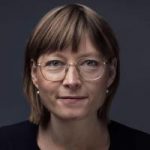 Professor Rebecca Adler-Nissen’s research focuses on international relations theory (especially international political sociology, stigma, status, recognition, norms, and the shifts in practice), diplomacy, digital technologies, social media, sovereignty, European integration, and anthropological methods. She was a visiting research fellow at the Centre for International Security Studies (University of Sydney), the Centre for International Peace and Security Studies (McGill University/University of Montreal), and the European University Institute (Florence, Italy). She was the head of section at the Department of European Policy of the Danish Ministry of Foreign Affairs.
Professor Rebecca Adler-Nissen’s research focuses on international relations theory (especially international political sociology, stigma, status, recognition, norms, and the shifts in practice), diplomacy, digital technologies, social media, sovereignty, European integration, and anthropological methods. She was a visiting research fellow at the Centre for International Security Studies (University of Sydney), the Centre for International Peace and Security Studies (McGill University/University of Montreal), and the European University Institute (Florence, Italy). She was the head of section at the Department of European Policy of the Danish Ministry of Foreign Affairs. Ms Dalya Salinas-Perez is a Mexican diplomat. She is currently posted to the Embassy of Mexico to the Kingdom of Norway, where she serves as head of the Consular Section and leads a special project on innovation in diplomacy. She holds an MA in international communication management from The Hague University of Applied Sciences.
Ms Dalya Salinas-Perez is a Mexican diplomat. She is currently posted to the Embassy of Mexico to the Kingdom of Norway, where she serves as head of the Consular Section and leads a special project on innovation in diplomacy. She holds an MA in international communication management from The Hague University of Applied Sciences.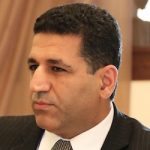 Ambassador Amr Aljowaily is Egypt’s Ambassador to Serbia. He is also visiting faculty at UNITAR’s Multilateral Diplomacy Program, adjunct faculty in International Security at the School of Global Public Affairs of the American University in Cairo, and a course lecturer on Multilateral Diplomacy at DiploFoundation. He has held leading positions in multilateral negotiations including Rapporteur of the United Nations’ Special Committee on Peacekeeping in 2015, Coordinator for Peacekeeping of the African Group Experts in NY in 2015, Coordinator for Disarmament of the Arab Group Experts in New York from 2011 to 2015, Vice Chair of the UN Disarmament Commission in 2013, Facilitator for the International Tracing Instrument for the Second Review Conference on the UN Program of Action on Small Arms and Light Weapons in 2012, Vice Chair of the General Assembly’s First Committee (on Disarmament and International Security) in 2011, Chair of WTO’s Committee on Information Technology Agreement in 2007, Chair of the Negotiating Group on Market Access the Global System of Trade Preferences in 2007, and was twice Coordinator of the African Group to UNCTAD and the ITU (2003-2005).
Ambassador Amr Aljowaily is Egypt’s Ambassador to Serbia. He is also visiting faculty at UNITAR’s Multilateral Diplomacy Program, adjunct faculty in International Security at the School of Global Public Affairs of the American University in Cairo, and a course lecturer on Multilateral Diplomacy at DiploFoundation. He has held leading positions in multilateral negotiations including Rapporteur of the United Nations’ Special Committee on Peacekeeping in 2015, Coordinator for Peacekeeping of the African Group Experts in NY in 2015, Coordinator for Disarmament of the Arab Group Experts in New York from 2011 to 2015, Vice Chair of the UN Disarmament Commission in 2013, Facilitator for the International Tracing Instrument for the Second Review Conference on the UN Program of Action on Small Arms and Light Weapons in 2012, Vice Chair of the General Assembly’s First Committee (on Disarmament and International Security) in 2011, Chair of WTO’s Committee on Information Technology Agreement in 2007, Chair of the Negotiating Group on Market Access the Global System of Trade Preferences in 2007, and was twice Coordinator of the African Group to UNCTAD and the ITU (2003-2005). Prof. Corneliu Bjola received his PhD in Political Science from the University of Toronto (2007) and previously taught and conducted research at McMaster University and the University of Toronto. He was a research fellow at the Woodrow Wilson International Center for Scholars and a visiting fellow at the Australian Defense Force Academy (2012) and the China Foreign Affairs University (2016). His current research interests relate to the impact of digital technology on the conduct of diplomacy with a focus on strategic communication and digital influence, as well as on theories and methods for countering disinformation and propaganda. He is co-editor of the book series New Diplomatic Studies with Routledge, and editor-in-chief of the new journal Diplomacy and Foreign Policy.
Prof. Corneliu Bjola received his PhD in Political Science from the University of Toronto (2007) and previously taught and conducted research at McMaster University and the University of Toronto. He was a research fellow at the Woodrow Wilson International Center for Scholars and a visiting fellow at the Australian Defense Force Academy (2012) and the China Foreign Affairs University (2016). His current research interests relate to the impact of digital technology on the conduct of diplomacy with a focus on strategic communication and digital influence, as well as on theories and methods for countering disinformation and propaganda. He is co-editor of the book series New Diplomatic Studies with Routledge, and editor-in-chief of the new journal Diplomacy and Foreign Policy. Ms Maricela Muñoz is Minister Counsellor at the Permanent Mission of Costa Rica to the United Nations in Geneva. She has more than 20 years of experience in multilateral diplomacy, working with governments, international organisations, the private sector, and civil society organisations, particularly in the areas of climate change, disarmament and non-proliferation, and the advancement of more peaceful and inclusive societies for sustainable development. She is particularly interested in areas such as digital diplomacy, information and communications technologies (ICTs), frontier technologies, including the Internet of things (IoT) and artificial intelligence (AI), nature-based solutions, and blended finance for regenerative development, among others.
Ms Maricela Muñoz is Minister Counsellor at the Permanent Mission of Costa Rica to the United Nations in Geneva. She has more than 20 years of experience in multilateral diplomacy, working with governments, international organisations, the private sector, and civil society organisations, particularly in the areas of climate change, disarmament and non-proliferation, and the advancement of more peaceful and inclusive societies for sustainable development. She is particularly interested in areas such as digital diplomacy, information and communications technologies (ICTs), frontier technologies, including the Internet of things (IoT) and artificial intelligence (AI), nature-based solutions, and blended finance for regenerative development, among others. Ms Asha DeSuza is responsible for social, humanitarian, cultural, and other issues covered by the Third Committee of the UN General Assembly. As a legal adviser, she additionally covers issues from the Sixth Committee (Legal), the Oceans and Law of the Sea, as well as health and migration, also under the remit of the General Assembly. Since her appointment in 2017, she has led several regional coordination efforts, and served as the Caribbean Community (CARICOM) negotiator for the Political Declaration on Non-Communicable Diseases, as well as the CARICOM coordinator during the 63rd Session of the Commission on the Status of Women. Having completed five DiploFoundation courses, including Capacity Development in Multilateral Diplomacy for the Caribbean, she considers herself part of the Diplo family.
Ms Asha DeSuza is responsible for social, humanitarian, cultural, and other issues covered by the Third Committee of the UN General Assembly. As a legal adviser, she additionally covers issues from the Sixth Committee (Legal), the Oceans and Law of the Sea, as well as health and migration, also under the remit of the General Assembly. Since her appointment in 2017, she has led several regional coordination efforts, and served as the Caribbean Community (CARICOM) negotiator for the Political Declaration on Non-Communicable Diseases, as well as the CARICOM coordinator during the 63rd Session of the Commission on the Status of Women. Having completed five DiploFoundation courses, including Capacity Development in Multilateral Diplomacy for the Caribbean, she considers herself part of the Diplo family. Dr Stephanie Borg Psaila is the Director for Digital Policy at DiploFoundation, and the Editor of the GIP Digital Watch observatory. In 2018-2019, she served as Diplo’s Interim Director and Head of Geneva Internet Platform, replacing Founding Director Dr Jovan Kurbalija during his one-year position as co-Executive Director of the Secretariat of the United Nations High-level Panel on Digital Cooperation. She holds a Doctorate in Law (LL.D.), a Master’s in Contemporary Diplomacy, and two law-related diplomas from the University of Malta, and her special areas of interest include legal issues in digital policy, human rights, and e-diplomacy. She holds a warrant to practice as a Notary Public in Malta, and is a former journalist with The Sunday Times of Malta.
Dr Stephanie Borg Psaila is the Director for Digital Policy at DiploFoundation, and the Editor of the GIP Digital Watch observatory. In 2018-2019, she served as Diplo’s Interim Director and Head of Geneva Internet Platform, replacing Founding Director Dr Jovan Kurbalija during his one-year position as co-Executive Director of the Secretariat of the United Nations High-level Panel on Digital Cooperation. She holds a Doctorate in Law (LL.D.), a Master’s in Contemporary Diplomacy, and two law-related diplomas from the University of Malta, and her special areas of interest include legal issues in digital policy, human rights, and e-diplomacy. She holds a warrant to practice as a Notary Public in Malta, and is a former journalist with The Sunday Times of Malta. Mr Shaun Riordan is director of the Chair for Diplomacy and Cyberspace at the European Institute for International Studies (EIIS), a senior fellow of the Charhar Institute (Beijing), and a senior consultant with the UN Institute for Training and Research (UNITAR) for digital and cyber diplomacy. He has taught at diplomatic institutes in Armenia, Bulgaria, the UAE, the Dominican Republic, and Spain. A former British diplomat, he served in the UN (New York), Taiwan, China, and Spain, as well as the Counter-terrorism and East Adriatic departments in the Foreign and Commonwealth Office. He is the author of The New Diplomacy (2003), Adios a la Diplomacy (2005), Cyberdiplomacy: Managing Security and Governance Online (2019) and The Geopolitics of Cyberspace: A Diplomatic Perspective (2019).
Mr Shaun Riordan is director of the Chair for Diplomacy and Cyberspace at the European Institute for International Studies (EIIS), a senior fellow of the Charhar Institute (Beijing), and a senior consultant with the UN Institute for Training and Research (UNITAR) for digital and cyber diplomacy. He has taught at diplomatic institutes in Armenia, Bulgaria, the UAE, the Dominican Republic, and Spain. A former British diplomat, he served in the UN (New York), Taiwan, China, and Spain, as well as the Counter-terrorism and East Adriatic departments in the Foreign and Commonwealth Office. He is the author of The New Diplomacy (2003), Adios a la Diplomacy (2005), Cyberdiplomacy: Managing Security and Governance Online (2019) and The Geopolitics of Cyberspace: A Diplomatic Perspective (2019). Mr Vladimir Radunović is a lecturer in cybersecurity policy, Internet governance, and e-diplomacy on postgraduate and professional courses. He also serves as a member of the Advisory Board of the Global Forum on Cyber Expertise (GFCE) and as an expert with the Geneva Internet Platform. He served as a member of the Multistakeholder Advisory Group of the UN Internet Governance Forum (IGF) from 2012 to 2014. He has been a lecturer, speaker, and resource person on a number of educational and training programmes and events worldwide, including within the WSIS and IGF processes. His professional and research focus is on Internet governance, broadband policy and net neutrality, cybersecurity and cyber-diplomacy, e-diplomacy, and capacity development. He holds an MSc in Electrical Engineering from the University of Belgrade and a Master’s in Contemporary Diplomacy from the University of Malta. He is currently working on his PhD in cybersecurity.
Mr Vladimir Radunović is a lecturer in cybersecurity policy, Internet governance, and e-diplomacy on postgraduate and professional courses. He also serves as a member of the Advisory Board of the Global Forum on Cyber Expertise (GFCE) and as an expert with the Geneva Internet Platform. He served as a member of the Multistakeholder Advisory Group of the UN Internet Governance Forum (IGF) from 2012 to 2014. He has been a lecturer, speaker, and resource person on a number of educational and training programmes and events worldwide, including within the WSIS and IGF processes. His professional and research focus is on Internet governance, broadband policy and net neutrality, cybersecurity and cyber-diplomacy, e-diplomacy, and capacity development. He holds an MSc in Electrical Engineering from the University of Belgrade and a Master’s in Contemporary Diplomacy from the University of Malta. He is currently working on his PhD in cybersecurity. Mr Arvin Kamberi heads up Diplo’s Webinar Team. Based in Belgrade, he has been working on webinars and other web-based remote participation since 2011. Arvin has been part of the remote participation team for many international forums, such as the IGF, EuroDIG, and local IGF events such as IGF Africa. From 2014 to 2015, he was a part of the IGF Working Group on Remote Participation (established in 2008), and involved in the elaboration of IGF remote participation guidelines. Arvin has a keen interest in cryptocurrency and blockchain developments; first as an avid ‘miner’, then more in terms of regulation and consensus mechanisms surrounding the decentralised systems. His primary focus is on Bitcoin development, but he follows other cryptocurrency developments and the blockchain/distributed ledger technology, too. Vice President of Bitcoin Association of Serbia, Arvin writes extensively about Bitcoin and blockchains. He holds an MA in Film and Video Production from Belgrade University of Art.
Mr Arvin Kamberi heads up Diplo’s Webinar Team. Based in Belgrade, he has been working on webinars and other web-based remote participation since 2011. Arvin has been part of the remote participation team for many international forums, such as the IGF, EuroDIG, and local IGF events such as IGF Africa. From 2014 to 2015, he was a part of the IGF Working Group on Remote Participation (established in 2008), and involved in the elaboration of IGF remote participation guidelines. Arvin has a keen interest in cryptocurrency and blockchain developments; first as an avid ‘miner’, then more in terms of regulation and consensus mechanisms surrounding the decentralised systems. His primary focus is on Bitcoin development, but he follows other cryptocurrency developments and the blockchain/distributed ledger technology, too. Vice President of Bitcoin Association of Serbia, Arvin writes extensively about Bitcoin and blockchains. He holds an MA in Film and Video Production from Belgrade University of Art. Dr Kristin Eggeling is a postdoctoral researcher at the Department of Political Science, University of Copenhagen (Denmark). She currently works on a research project on digitalisation and diplomatic practices in the EU, which is funded by the European Research Council (ERC). She holds a BA in Liberal Arts and Sciences from the University College Maastricht (Netherlands), an MLitt and PhD from the School of International Relations at the University of St Andrews (United Kingdom), and has previously worked in the private and policy sector in Doha and Brussels. She is the author of Nation-branding in Practice: The Politics of Promoting Sports, Cities and Universities in Kazakhstan and Qatar (Routledge, 2020)..
Dr Kristin Eggeling is a postdoctoral researcher at the Department of Political Science, University of Copenhagen (Denmark). She currently works on a research project on digitalisation and diplomatic practices in the EU, which is funded by the European Research Council (ERC). She holds a BA in Liberal Arts and Sciences from the University College Maastricht (Netherlands), an MLitt and PhD from the School of International Relations at the University of St Andrews (United Kingdom), and has previously worked in the private and policy sector in Doha and Brussels. She is the author of Nation-branding in Practice: The Politics of Promoting Sports, Cities and Universities in Kazakhstan and Qatar (Routledge, 2020).. Professor Jeffrey Robertson is an associate professor at Yonsei University, and a visiting fellow at the Asia-Pacific College of Diplomacy (APCD) at the Australian National University (ANU). Before moving to academia, he worked for the Australian government in the field of foreign policy and North Asia, focusing on China, the Korean Peninsula, and Japan. This included a period as a senior research specialist for the Australian parliament where he provided advice to members of parliament, senators, and parliamentary committees on foreign policy, and political and strategic affairs relating to North Asia.
Professor Jeffrey Robertson is an associate professor at Yonsei University, and a visiting fellow at the Asia-Pacific College of Diplomacy (APCD) at the Australian National University (ANU). Before moving to academia, he worked for the Australian government in the field of foreign policy and North Asia, focusing on China, the Korean Peninsula, and Japan. This included a period as a senior research specialist for the Australian parliament where he provided advice to members of parliament, senators, and parliamentary committees on foreign policy, and political and strategic affairs relating to North Asia. Dr John Hemery (OBE) is the founder and chairman of the Centre for Political and Diplomatic Studies, a private institution delivering programmes of professional development in international policy and diplomatic tradecraft worldwide. He was educated at Dartmouth College in the United States, and as a postgraduate at both Oxford and Cambridge. He has designed and directed specialist courses for political leaders, government officials, and civil society organisations from more than a hundred countries, and for a number of international institutions and transnational corporations. He is a visiting professor at the College of Europe, Bruges, and a visiting fellow of the Asia-Pacific College of Diplomacy, Australian National University. For twenty years (1999-2019), he was a rapporteur of the International Forum on Diplomatic Training (IFDT).
Dr John Hemery (OBE) is the founder and chairman of the Centre for Political and Diplomatic Studies, a private institution delivering programmes of professional development in international policy and diplomatic tradecraft worldwide. He was educated at Dartmouth College in the United States, and as a postgraduate at both Oxford and Cambridge. He has designed and directed specialist courses for political leaders, government officials, and civil society organisations from more than a hundred countries, and for a number of international institutions and transnational corporations. He is a visiting professor at the College of Europe, Bruges, and a visiting fellow of the Asia-Pacific College of Diplomacy, Australian National University. For twenty years (1999-2019), he was a rapporteur of the International Forum on Diplomatic Training (IFDT). Professor Yolanda Kemp Spies was trained as a diplomat at the South African Foreign Ministry and at Oxford University, UK. She practiced diplomacy for 19 years, and lived and worked on four continents before she joined academia. She completed her doctorate in International Relations in 2005, after which she designed a Master of Diplomatic Studies program for the University of Pretoria. She directed the programme until 2016. From 2016 to 2019 she lectured in Masters programmes at (the American) Webster University’s Ghana campus. Her academic specialisation and publications include diplomacy, foreign policy analysis, international organisations, international law, conflict resolution, changing global power relations, and African politics and ethics in international relations. During 2019 she published two books on the theory and practice of diplomacy: Global Diplomacy and International Society; and Global South Perspectives on Diplomacy.She joined Zayed University during January 2020, as Associate Professor of International Studies.
Professor Yolanda Kemp Spies was trained as a diplomat at the South African Foreign Ministry and at Oxford University, UK. She practiced diplomacy for 19 years, and lived and worked on four continents before she joined academia. She completed her doctorate in International Relations in 2005, after which she designed a Master of Diplomatic Studies program for the University of Pretoria. She directed the programme until 2016. From 2016 to 2019 she lectured in Masters programmes at (the American) Webster University’s Ghana campus. Her academic specialisation and publications include diplomacy, foreign policy analysis, international organisations, international law, conflict resolution, changing global power relations, and African politics and ethics in international relations. During 2019 she published two books on the theory and practice of diplomacy: Global Diplomacy and International Society; and Global South Perspectives on Diplomacy.She joined Zayed University during January 2020, as Associate Professor of International Studies.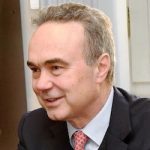 Ambassador Stefano Baldi is a career diplomat in the Italian Ministry of Foreign Affairs and International Cooperation. Since 2016, he has been the Ambassador of Italy to Bulgaria. Previously, he was the Director of the Diplomatic Institute at the Ministry of Foreign Affairs of Italy (2011-2016). He has served at the Permanent Mission of Italy to the European Union in Brussels, at the Permanent Mission of Italy to the International Organizations in Geneva, and at the Permanent Mission of Italy to the United Nations in New York. He was the first head of the Statistical Office of the Ministry from 2000 to 2002. Amb. Baldi has lectured in many Italian universities, holding seminars and courses in international affairs and in soft skills applied to international careers. His most recent research focuses on diplomatic management, social media for international affairs, and books written by diplomats. He is the author of more than 15 books. From 2013 to 2016 he produced and presented a weekly radio programme on diplomats at the webradio Radio LUISS.
Ambassador Stefano Baldi is a career diplomat in the Italian Ministry of Foreign Affairs and International Cooperation. Since 2016, he has been the Ambassador of Italy to Bulgaria. Previously, he was the Director of the Diplomatic Institute at the Ministry of Foreign Affairs of Italy (2011-2016). He has served at the Permanent Mission of Italy to the European Union in Brussels, at the Permanent Mission of Italy to the International Organizations in Geneva, and at the Permanent Mission of Italy to the United Nations in New York. He was the first head of the Statistical Office of the Ministry from 2000 to 2002. Amb. Baldi has lectured in many Italian universities, holding seminars and courses in international affairs and in soft skills applied to international careers. His most recent research focuses on diplomatic management, social media for international affairs, and books written by diplomats. He is the author of more than 15 books. From 2013 to 2016 he produced and presented a weekly radio programme on diplomats at the webradio Radio LUISS. Professor André Saramago is an Assistant Professor of International Relations at the University of Coimbra, in Coimbra, Portugal. His research focuses on the fields of international relations theory, international historical sociology, and East Asia studies. André has been collaborating with DiploFoundation in online learning and research since 2017. He holds an MA in International Relations (University of Lisbon, Portugal) and a PhD in International Politics (University of Aberystwyth, UK).
Professor André Saramago is an Assistant Professor of International Relations at the University of Coimbra, in Coimbra, Portugal. His research focuses on the fields of international relations theory, international historical sociology, and East Asia studies. André has been collaborating with DiploFoundation in online learning and research since 2017. He holds an MA in International Relations (University of Lisbon, Portugal) and a PhD in International Politics (University of Aberystwyth, UK).